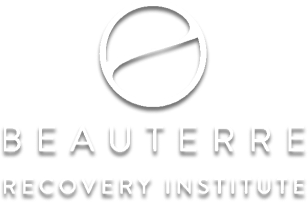On April 21st 2016 Minnesota and the rest of the world listened in as the shocking news of Prince’s sudden death spread across news outlets. The sky began to erupt in dark clouds, and thick heavy raindrops fell through the city of Minneapolis as we mourned with the rest of the world, a life gone to soon.
Prince, whose full name was Prince Rogers Nelson, died April 21 at age 57, after being found unresponsive in an elevator at Paisley Park, his home and recording studio in Chanhassen, Minnesota.” – CNN
The questions and speculations quickly followed and the words “drugs” and “overdose” became headline news. The rumors emerged, stores began to sell out of purple merchandise, and a rainbow hung over the Minneapolis skyline replacing the heavy rain.
More than 100 people die every day in the United States from a drug overdose. In Minnesota alone, the number of heroin overdose deaths jumped from 50 in 2011 to 98 in 2013.” – Steve Rummler Hope Foundation
Minnesota is not only a state with 10,000 lakes, but one many refer to as “Minne-sober”.
Hundreds of treatment centers, sober living facilities, halfway houses and chemical dependency counselors make Minnesota the ideal location for treatment.

Prince could have driven a few miles in any direction and found help. Instead, he was found unconscious in his own home, due to an accidental overdose.
Accidental drug overdose is currently the leading cause of injury-related death in the Unites States for people between the ages of 35-54 and the second leading cause of injury-related death for young people. Drug overdose deaths now exceed those attributable to firearms, homicides or HIV/AIDS.” – Drug Policy
Beauterre Recovery Institute wants to help in any way we can, to prevent situations like this before they occur.
Maybe you take prescription pills and don’t think you have a problem?
Or maybe you are secretly taking pills that aren’t yours?
So what is it you need to know about drug overdose?
No matter the scenario 3 key things you need to know for yourself and/or your loved one:
- Know the symptoms – “The first and most obvious sign of an overdose is actually witnessing someone take more of a drug than is recommended.” – Healthline. This Includes yourself. Pain not going away? Reaching for another pill? Can’t remember if you took one or two or three? Ask someone to administer the pills for you. (Click here for other signs and symptoms you need to be aware of.)
- Know who is at risk – “Someone who abuses a drug, either an illegal street drug or a prescription drug, is at greater risk for overdose. Someone who abuses drugs and has overdosed in the past is especially at risk. Another risk factor is using multiple drugs or mixing different drugs with each other or with alcohol. Mental health problems can also be risk factors for a drug overdose. Anyone with depression, or who exhibits suicidal behaviors, thoughts, or actions, or who engages in high-risk activities, is at a greater risk for an intentional or accidental overdose. Someone with these mental health issues who is not getting treatment is at higher risk.” – Healthline
- Know what to do – Be alert to your loved ones patterns and behavior especially if they are taking prescription pills. Call 911 if the person has collapsed or stopped breathing. There are resources like this one to help you! The Steve Rummler Hope foundation – The foundation’s overdose prevention program grew out of the need for implementation of Steve’s Law (Minnesota Good Samaritan/Naloxone legislation) which passed unanimously through both houses of the Minnesota state legislature in 2014. Steve’s Law provides limited immunity to those who call 911 in good faith to save a life and allows first responders, law enforcement and trained lay people to administer naloxone, which can counteract the effects of an opioid overdose within minutes.” – Steve Rummler Hope Foundation
With the right help, education, and treatment, accidental overdoses can be prevented.
We want you to live your best life and find freedom from drugs and alcohol. Don’t hesitate asking for help now, let’s lower the statistics, let’s continue to fight for freedom from addiction.
If this is you or someone you love and you need help…reach out now. We are here for you!
*Photo by Unsplash
 Beauterre Recovery Institute
Beauterre Recovery Institute
